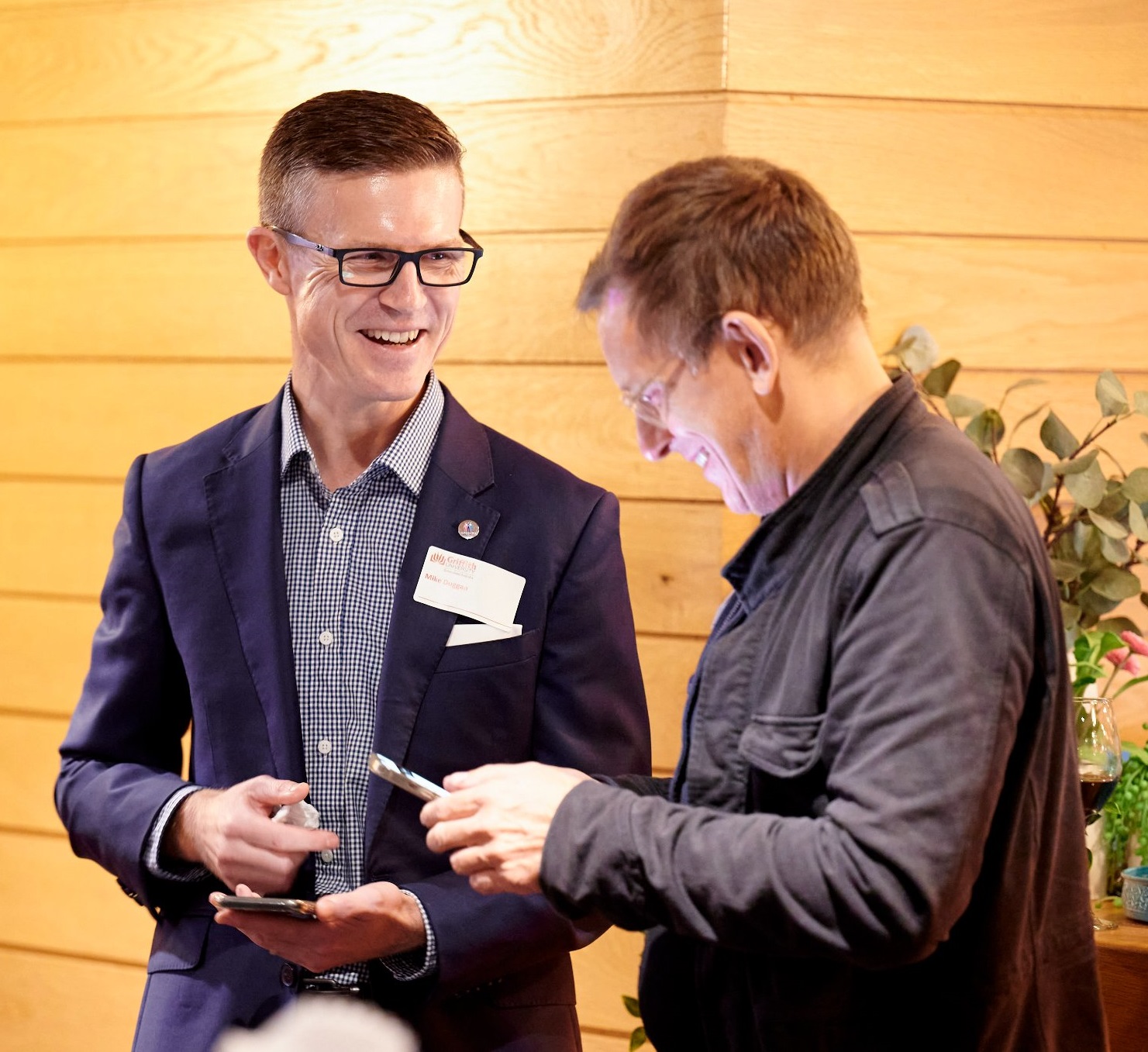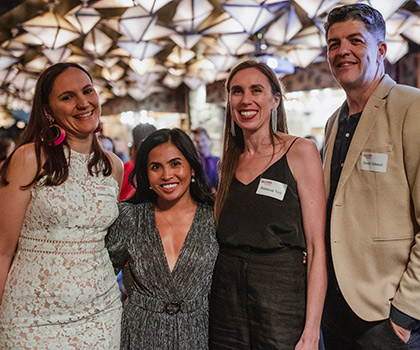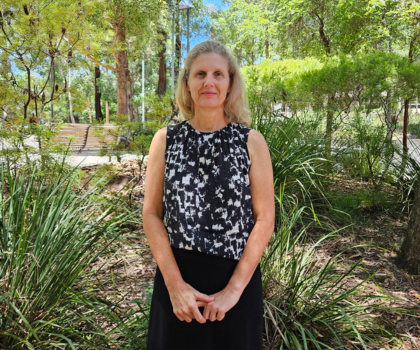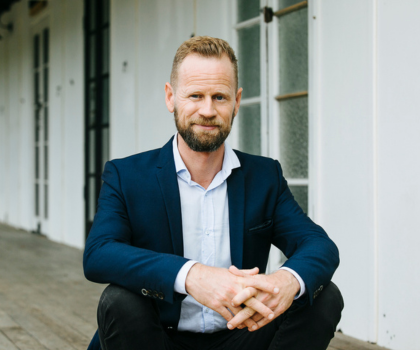
Michael Duggan is an Adjunct Associate Professor, who shares his experiences and expertise with our MBA Community. In this interview, Michael talks about fatherhood, work-life balance and the importance of the Sustainable Development Goals (SDGs).
You are a Founding Father of Fathers of Girls. Can you tell us a little bit about this organisation? How did it come about it?
As a father of two daughters, I believe strongly in sharing the role of a modern father with others and being a role model for my two girls. In 2015, a group of fathers of only daughters founded Fathers of Girls Ltd, a Brisbane-based not-for-profit that supports daughters and their fathers to be the best they can be.
We are focused on creating a network of like-minded fathers, who share experiences and learnings as we navigate a life with daughters. In addition, we are supporting those less fortunate then our daughters, including vulnerable Australian girls, to thrive through netball and other sporting opportunities.
Our community of supporters have raised over $100,000 for the Confident Girls Foundation through our annual ‘Give for a Goal’ netball day, Rail Trail Ride and Charity Luncheon. As one of the ‘Founding Fathers’ and a Board Director, I am proud of our work to support other fathers to embrace our vulnerability, to invest in ‘maintaining the magic’ and to never step back from our daughters as we navigate life together.
If you had to pick one lesson your daughters have taught you, what would it be?
I have learned a lot about being a role model and caregiver over the last 13 plus years. My oldest daughter, Addison, is turning 14 this year and my youngest, Tyler, just turned 11. The big lesson for me, has been the importance of time spent connecting with each other. Whether that be on walks, sport practices, dance recitals or the drive to school in the morning. Spending any amount of time really present and connecting we each other is an investment working making every single time.
You successfully juggle full-time work, several volunteer positions and fatherhood. Any work-life balance tips for our MBA Community?
One of my favourite questions! I have had to get very good at ‘juggling’, I even taught myself how to juggle for real and now I use this as a tactic to get myself away from my laptop and forced into concentrating on nothing more than balancing three balls in the air.
Seriously though, my tips are to set objectives and key results and map out how you are going to be successful. This could be through lists of actions and milestones with dates that are visualised so they are kept front of mind. Not everyone is wired the same way to naturally use lists and prompts to keep balance so find a system that works for you and trial it. Also, and more importantly take time out for yourself and to slow things down in life. I use the mantra ‘it’s Ok to walk’ often in life as it really is ok to give yourself a break and realise you can’t do everything. If you try to run up every mountain you’ll just blow up so take some time to ‘walk’ in life and take stock of what matters and what direction you should be heading in.
Your day job is as a Director of Sustainability and Climate Change Risk at Ashurst Risk Advisory. What does a typical day look like?
My role at Ashurst Risk Advisory varies greatly but always has the same key objective to create the extraordinary for our clients through sustainable approaches to business. I conduct workshops with clients helping them to solve key business challenges, work with my legal colleagues to ensure clients have the best advice on how to operate their business and speak on podcasts about the leading role of society and business in, for example, realising a climate positive 2032 Brisbane Games. I get to shape policy, drive change and lead amazingly talented people every day, which never stops being fun and exciting!
What is one thing you have recently listened to, watched, or read, that you would recommend to an MBA student?
I’ve been reading a lot lately about the progress society is making towards the Sustainable Development Goals (SDG). We are now half way towards the objective of meeting the targets set in 2015 by 2030 and we are falling way behind globally. Reducing food scarcity, decreasing inequality, increasing just working opportunities and ensuring the world is on a path to reduced climate impact are all things our society should be able to achieve.
I would recommend any business leader to develop an understanding for how important these Global Goals are and to identify ways they can have an impact on them over the next 7 ½ years. These Goals will shape the macro-business trends for many years to come and are filled with opportunity for any leader to identify as a driver for purpose-driven business strategy.
And last but certainly not least, what has been your most memorable experience to date as an Adjunct Associate Professor?
I was fortunate to have the opportunity to be involved in the MBA’s Regenerative Business Challenge over a number of years as a mentor and judge. The student projects I was privileged to engage with were inspiring and exciting in equal measure. I know some of these projects have progressed on to real business concepts and will have an massive impact for years to come on the people and communities they are designed to serve.
If you have a question for Adjunct Associate Professor, Michael Duggan, we encourage you to connect on LinkedIn.
You may also like

Meet "The Breakfast Club"
These students participated in PwC’s Future Solvers case competition, which took a deep dive into the big issues of the nation’s future. Find out about our students’ experience and the innovative solutions they developed.

Meet Academic, Professor Ashlea Troth
Ashlea is the Course Convenor for Leading for Sustainable People Outcomes. In this interview, Ashlea talks about what students can expect from this course, and the misconceptions surrounding emotional intelligence.

Meet MBA Alumnus, Dane Jacka
Dane is the founder of Pause, a business seeking to transform workplaces through mindfulness. In this interview, Dane talks about why organisations should invest in their employees mindfulness and what prompted him to get back into the classroom.